eClinicalWorks Blog

- 4 September, 2019
- blog
How to Make Quality Metrics Work for Your Organization
Whether you’re cutting into a juicy steak or biting into a crisp apple, food safety metrics were established to keep you safe and feeling healthy. Meeting all of these requirements can feel overwhelming, so tools have been created to make the process easier and more efficient for food and beverage manufacturers.
Continue Reading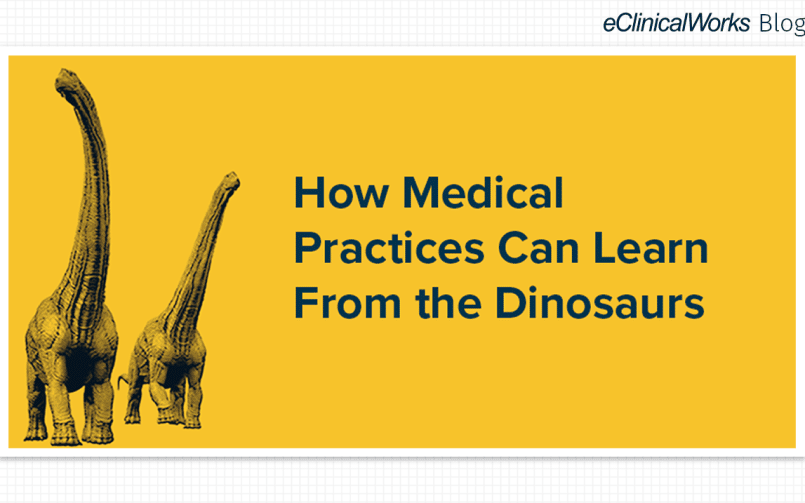
- 30 August, 2019
- blog
Healthcare Success Through Constant Adaptation
Dinosaurs get a bad rap. Conventional wisdom says they were cold-blooded, had small brains, and were incapable of adapting to rapid climate change following a cataclysmic asteroid impact. The lessons for businesses? Move faster. Work smarter. Adapt.
Continue Reading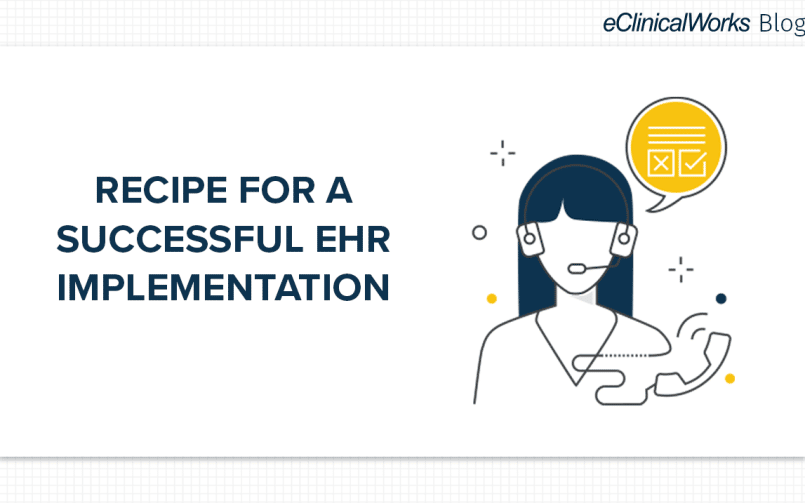
- 21 August, 2019
- blog
Recipe for a Successful EHR Implementation
As organizations are overwhelmingly dissatisfied with their Electronic Health Record (EHR), many are beginning to make the switch for better healthcare IT. A recent Medical Economics’ study found 62% of practices have already switched EHRs at least once.
Continue Reading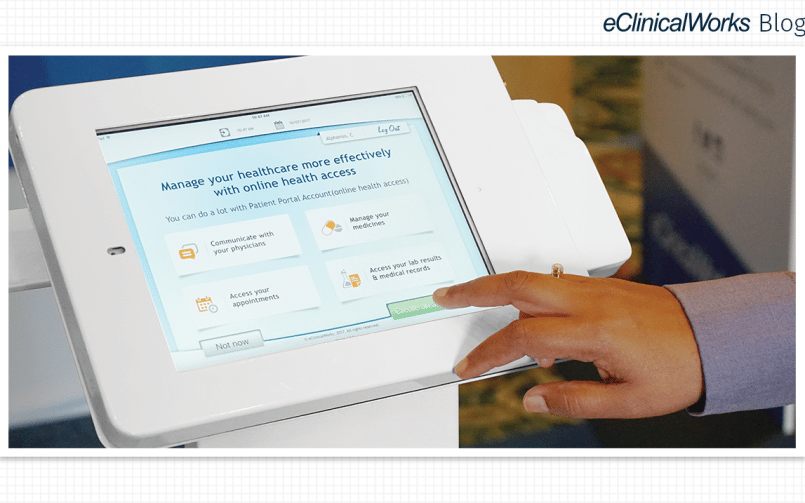
- 14 August, 2019
- blog
Patient-Centered Care: How the Approach Can Improve Healthcare
The healthcare industry is undergoing dramatic efforts to improve the delivery of care. Lots of changes have already occurred that have expanded access to quality care. Now, the challenge is to shift the conversation to focus on optimizing health that emphasizes patient-centered care.
Continue Reading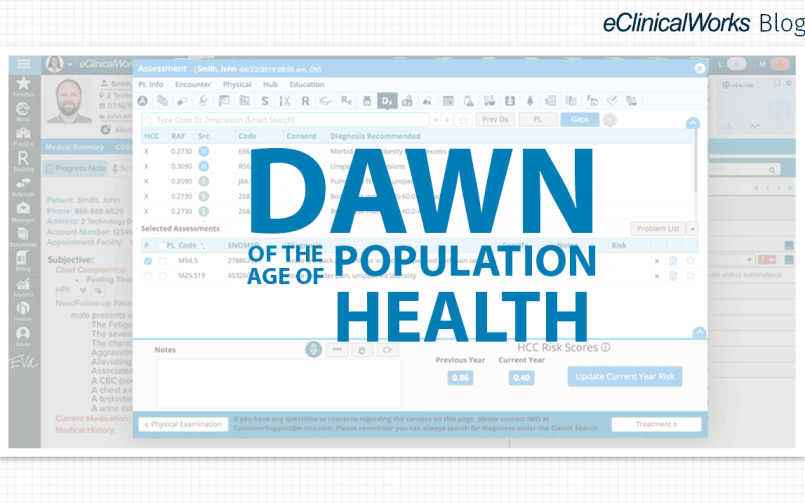
- 7 August, 2019
- blog
Dawn of the Age of Population Health
Each year brings new advances in medical technology and new understanding of challenges in healthcare. The progress of science is so visible that it’s easy for physicians, patients, and public-policy experts to believe all the tools necessary to build a healthier society are already in hand.
Continue Reading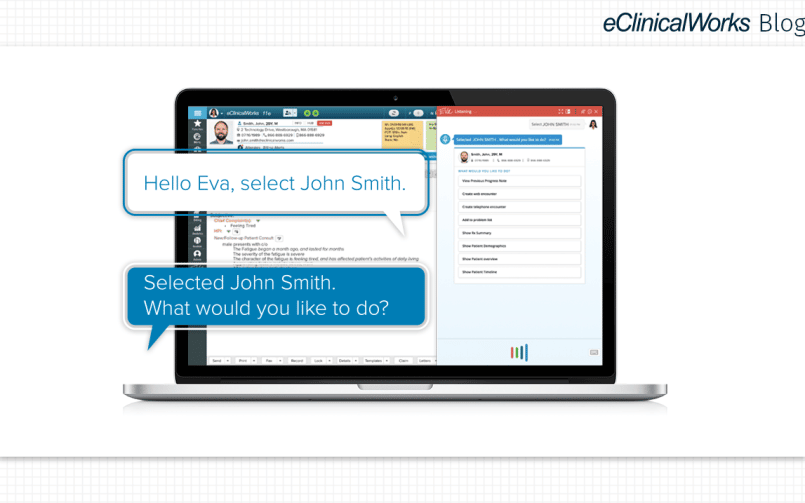
- 2 August, 2019
- blog
Emerging Technologies, Emerging Understanding
Each year brings new technologies and breakthroughs in healthcare. But to ensure accurate understanding among patients, healthcare providers need to have and share realistic perspectives on technological advances. In short, what’s real and what’s hype?
Continue Reading
- 31 July, 2019
- blog
How to Improve the Patient Experience: Establishing a Strong Online Presence
To thrive in today’s healthcare environment, a strong online presence is vital for quality patient care. A recent survey conducted by Healthcare Dive found that 80% of respondents had conducted a health-related online search in the past year. And, 60% of the respondents admitted they would forgo an appointment, even after being referred, if the provider has poor quality reviews.
Continue Reading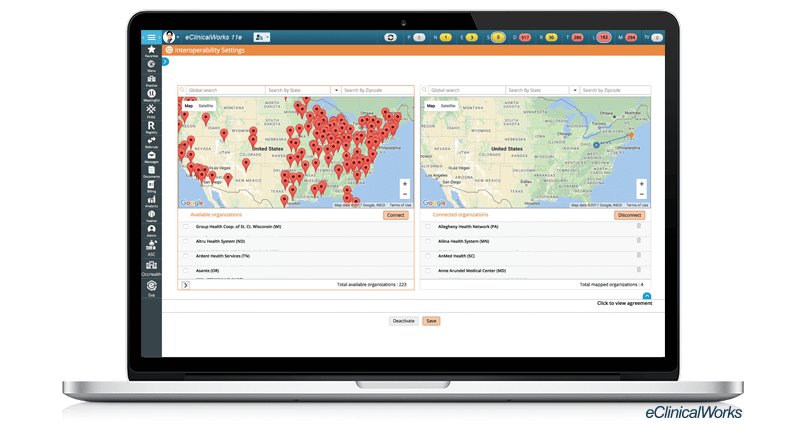
- 19 July, 2019
- blog
Patient Histories: The Key to Quality Care
The idea of interoperability in healthcare IT isn’t new, but there’s still confusion and misunderstanding regarding what interoperability really is. At a basic level, interoperability means sharing data between disparate programs. But asking another practice or hospital for patient records isn’t true interoperability. Nor is logging into their system to retrieve those records.
Continue Reading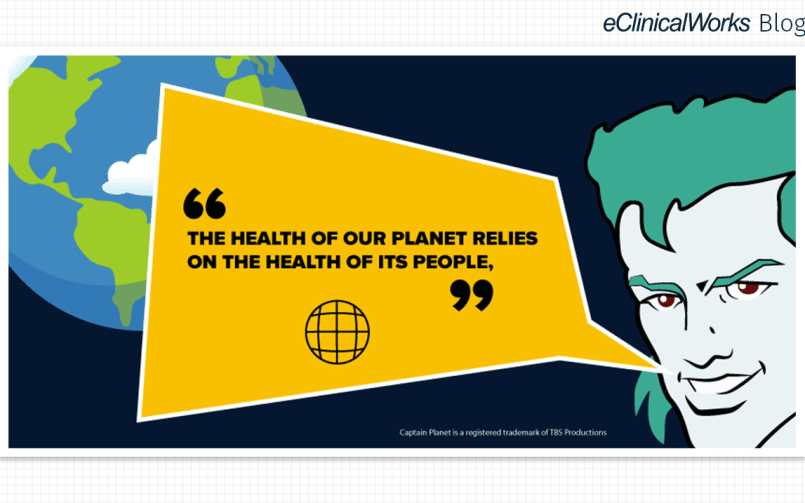
- 17 July, 2019
- blog
The Importance of Encouraging a Healthy Community
Health is described as a “state of complete physical, mental, and social well-being and not merely the absence of disease or infirmity” (WHO). Community health, often overlooked, is essential to meeting this definition.
Continue Reading
- 10 July, 2019
- blog
Our Early Bird Rate is Running Out! #eCWNC19
This year is special. This year marks the 20th year since eClinicalWorks set out on its mission to improve healthcare together. Are you ready to learn, discuss, and celebrate with us as we honor 20 years and kick off our next 20? Then join us at the 2019 eClinicalWorks National Conference from October 18-20 at the Orlando World Center Marriott.
Continue Reading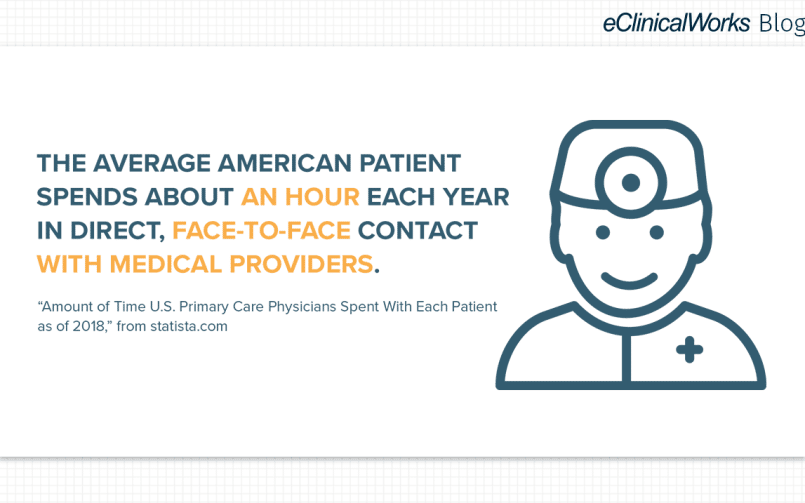
- 1 July, 2019
- blog
Essential Strategies to Improve Healthcare
With value-based care the new standard in medicine, attention is increasingly focused on what healthcare organizations can do to improve Patient Engagement. A clear strategy for retaining patients and attracting new ones is a key part of delivering consistent, quality care.
Continue Reading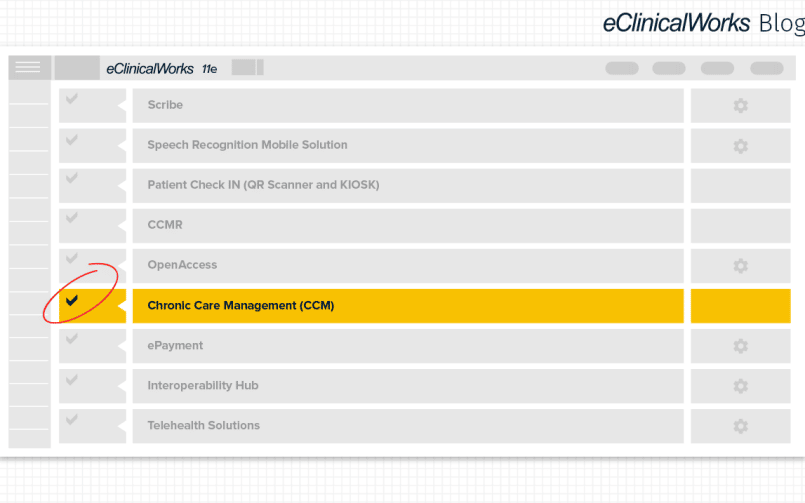
- 28 June, 2019
- blog
Implementing a patient safety culture
Patient safety is something I could talk about over and over; patient safety has always played —and always will play — a central role in the success of Eagle Physicians and Associates down here in Greensboro, North Carolina.
Continue Reading